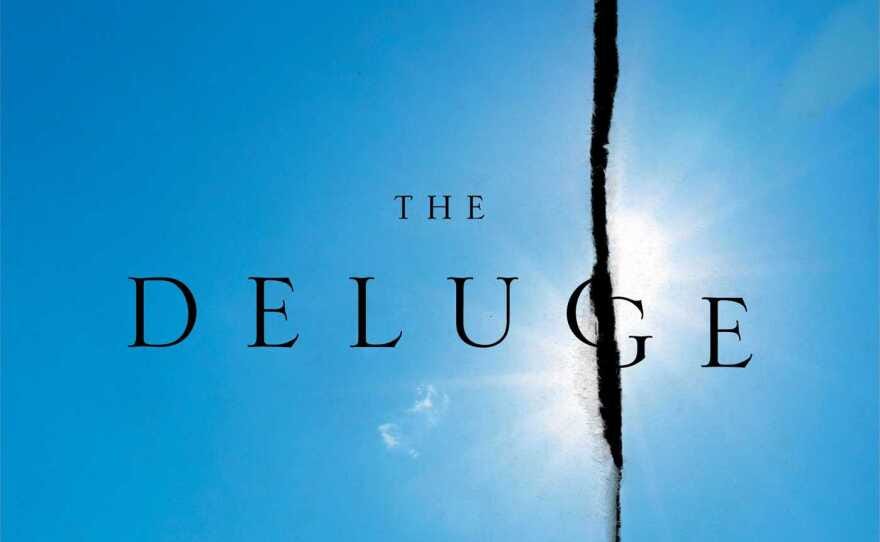A review of Serotonin, by Michel Houellebecq (2019)
Serotonin is a lie. Houellebecq wants you to believe this is a book about antidepressants. But the fictional Captorex is never more than a plot footnote. Then he wants you to believe it is about the depression of its protagonist, Florent-Claude. This too, is a lie, but a more cleverly disguised one. For his illness is only a vehicle through which to depict and mirror the plight of France’s culture. Yet this is not truly the plot. Because Houellebecq isn’t interested in the particular suffering of the French farmer, that is merely a fact and he doesn’t care about those. No, Serotonin is a psyop to indoctrinate you into the arcane 18th century economics of the Physiocrats. Yet like Mishima’s belief that perfection can only be achieved in glorious death, so too does Houellebecq believe. For him, it is because of the sublime truth of physiocratic economics that it is doomed to non-existence. If it be true and good, thus it cannot be. We live in Mainländer’s Gottes Leiche, Voltaire’s Best of all Possible Worlds. If the rightly lived life can be conceived then it is ipso facto impossible. And thus Houllebecq’s thinly veiled manifesto is its own fatal critique.
So, you may be asking, what is the actual plot of Serotonin? Well, at least on the surface, it is about the terminal phase of Florent-Claude’s depression and what led him to this point. Delivered as a written record of the middle-aged agronomist, it gives a meandering but lucid account, with a nod to the idea that these thoughts are ‘unedited’. For example, Florent-Claude frequently forgets details he’s mentioned before and relies on you, “the dedicated reader”, to recall them.
In the main, his recollections are about lost loves, agricultural policy, and the difficulties of finding smoker-friendly hotel rooms. Interspersed between these are little digressions into whatever else Florent-Claude happens to be thinking about: Fascist tourism, the topography of a girlfriend’s anus, or if a crime of passion will earn him less prison-rape than an ordinary femicide. While usually coming to quite repulsive conclusions, the deadpan delivery makes it difficult to not find these monologues humorous (trust me on this one).
Like the Norman Farmlands Florent-Claude wanders through, he is dead but not yet gone. Both clinging at the edge of oblivion and persisting only for the inertia of existence. Florent-Claude has squandered his true loves for cheap facsimiles which have, ultimately, left him emotionally destitute and reliant on insufficient palliatives from the state—which can only prolong his decline. No prizes for getting the agricultural parallels there.
This parallel reaches its crescendo at an armed clash between desperate French farmers and policemen escorting cheap international milk. But after this high point the plot tapers away, falling into a gloomy trudge towards the inevitable end—only a short subplot around infanticide providing any interesting notes to the dirge the novel devolves into.
And why doesn’t Houellebecq carry his very obvious manifesto for French farming to any other conclusion? Because he’s made his point. He’s shown you what’s good, a society founded in the organic wealth of its land and the love of its women, and then told you such a physiocratic vision can never happen. Houellebecq is a card-carrying doomer. This is what makes the novel’s opening chapters so funny, interesting, and at times thought provoking. As there is no hope of ever succeeding, the ideas can roam free-flow, without any compunction about the sacred cows they slaughter along the way. But Nihilism is only interesting for so long. The problem is Florent-Claude (and I assume Houellebecq) takes his depression as a metaphysical truth. What could have been a powerful lament for a dying rural culture is instead a whiney ‘I never win anything anyway’.
And this is especially egregious on the love side of the parallel. Florent-Claude’s damning of modern society as a depression-machine designed to spoil love rings a bit hollow. Especially when he fails to dedicate ever so-much as a single second to ponder if his experience, rather than being a universal truth, has something to do with the bitter, unpleasant, and self professed “pussy” telling the story.
-Ben Shread-Hewitt
Other Reviews of Contemporary Fiction:
Everything Everywhere is Horrible, all at Once: ‘Paradais' (Fernanda Melchor, 2021)
A review of Paradais, by Fernanda Melchor (2021)
Welcome to The Future: 'The Deluge', (Stephen Markley, 2023)
A review of The Deluge, by Stephen Markley (2023)
Para-social suffering: 'My Year Of Rest and Relaxation' (Ottessa Moshfegh, 2018)
A review of ‘My Year Of Rest and Relaxation’, by Ottessa Moshfegh (2018)








